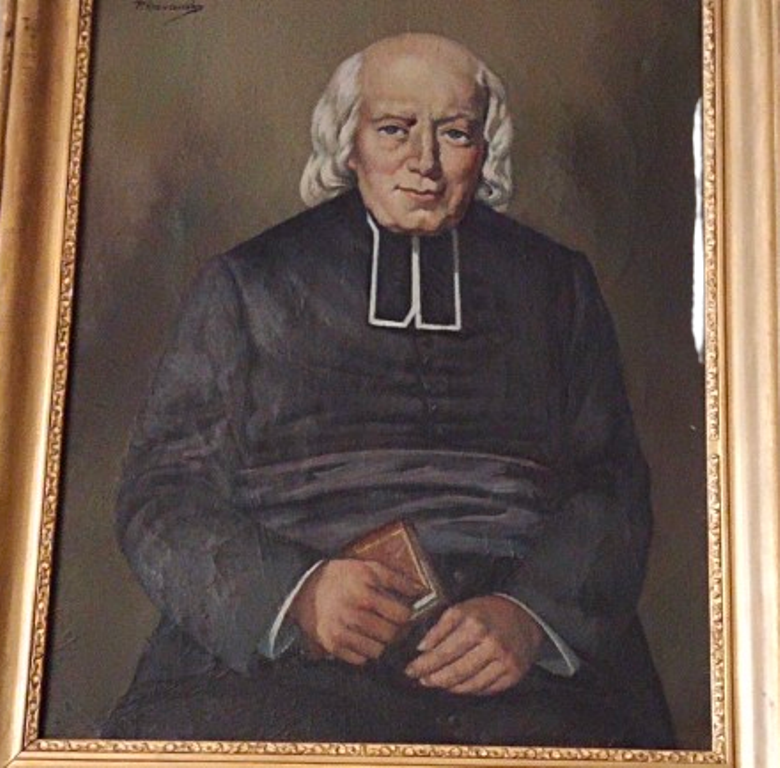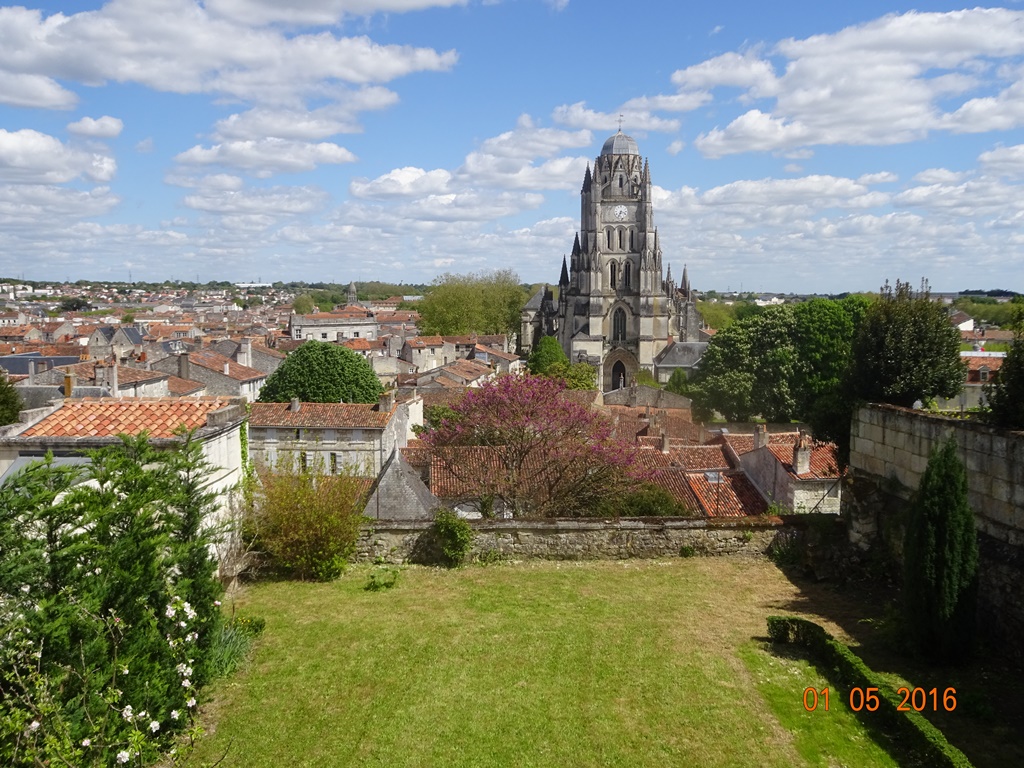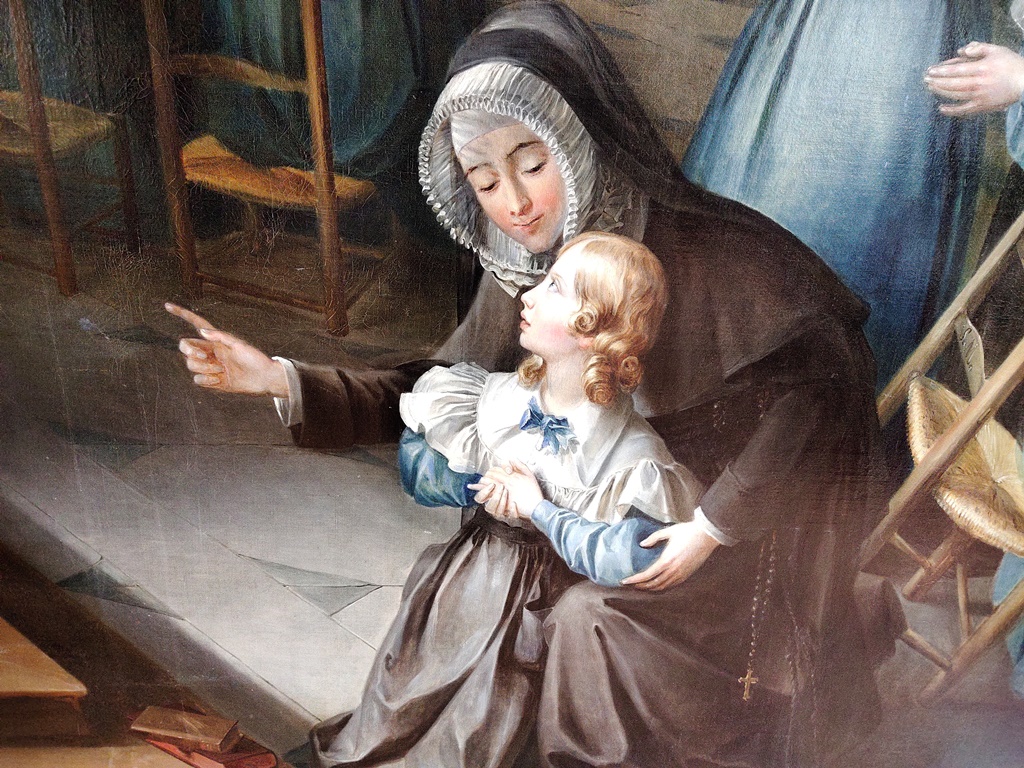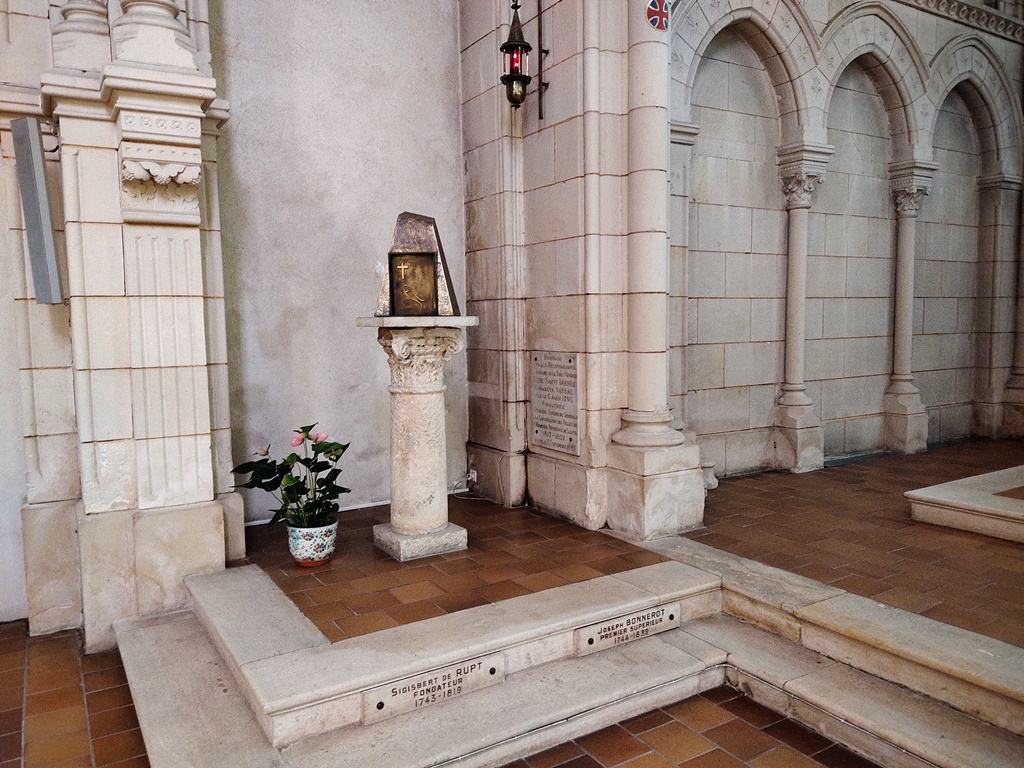Our Founder, Fr. Sigisbert de Rupt was born on 27 April 1744 into a well to do family in the town of Heudicourt in North East France. He studied in Paris where he met Fr. Hardy and Fr Bannerot who were originally from Saintes. They probably encouraged him to come to Saintes where he arrived in 1766. He was appointed as teacher of French Language and Literature in the Royal College of Saintes where he taught for many years. Having started his training for priesthood while in Paris, he was ordained soon after his arrival in Saintes. He was a good scholar and pastor and served the Diocese of Saintes/ La Rochelle in the south west of France. He was 22 years old when he came to Saintes. He was noted for his noble character and learning and became the parish priest of the Cathedral of St. Pierre in Saintes. Fr. De Rupt became the deputy head and then the Principal of the Royal College situated close to the Cathedral in 1788.

Fr. Sigisbert's story is very much linked to the French Revolution and its drastic and tragic consequences for the Church in France. Like many other priests, he welcomed the social reforms promised by the revolutionaries and was an ardent propagandist of new ideas aiming at suppressing inequalities. But the course of life changed when on 21 January 1791, the priests were asked to make an oath to the Civil Constitution of the Clergy. Fr. De Rupt refused to take the oath and stood as an example to his colleagues. The Bishop wrote to him expressing his admiration: "I feel father that you have put yourself in a cruel position with a distressing outcome. It is precisely because I can feel the seriousness of this situation that I admire your courage and steadfastness. I never doubted it for one moment! Knowing your opinions and religious principles, I had foreseen your decision when asked to take this oath which the church reproves and in consequence, is unacceptable to your conscience." A year later the Bishop was executed for refusing to take the oath.

The Royal College along with 561 other catholic schools were soon to be closed. Fr. Sigisbert was expelled from the college on 25 January 1791. A great number of priests became the targets for the new government. Many were exiled or killed mercilessly as the revolutionaries identified the Church with feudalism. He continued to exercise his role as a priest secretly for a period of time but finally decided to go into exile in Spain, (Lorea). In August 1792 he sailed to BILBAO from ROYAN as the situation became unbearable. People in France could not practice their faith openly and life became more and more difficult for all the priests who did not take the oath. It was a time of radical, political and societal change in France which started in 1787 and ended with the formation of the French Consulate in November 1799 with Napoleon Bonaparte, the French Army General as its head. It sought to completely change the relationship between the rulers and the ruled and to redefine the nature of political power. In the meantime, the revolution raged on causing great destruction of churches, properties and making many people homeless, poor and orphans.
In Spain he stayed in the Basque country and many people witnessed that Fr. De Rupt was blessed with special graces. He was appreciated for his goodness and talents and was asked to stay but he heard the Lord calling him to return to France.

Our founder, Fr. Sigisbert de Rupt came back from his exile in Spain and returned to Saintes in 1802, ten years later, to find that everything needed to be rebuilt at all levels: material, human, and spiritual. Presbyteries were sold, the churches devastated, attitudes of the people changed. Even though he was offered a more comfortable place in the Bishop’s house, Fr. De Rupt chose to stay close to his parishioners as he wished to ‘exercise his tender mercy towards the poor.’ On 1st December 1807 he became the parish priest again of the cathedral of St. Pierre which was almost devastated by the revolutionaries. His health was poor but he gave his energy, time and money to repair the cathedral which had no roof, no framework, no paved floor, no sacred vessels or vestments. He appealed to the people of his parish for support in his repair work.

In his priestly ministry, he came into contact with the dire moral poverty of the children of the lower classes. The population was divided, bewildered, without someone to give them direction. As an educator, he keenly noticed the need to care for the children and youth drifting towards delinquency. Girls were especially illiterate. To respond to this need in the best way possible, he decided to found a Congregation dedicated to ‘the education of the youth and instruction of the poor.’ Like the other founders of the time, he understood the importance of giving a Christian Education to the girls as it is generally the woman who passes on the moral and spiritual values to her children. Girls are the future mothers and educators of their children. In our Constitution we read, "Education has a major influence on the life as a whole. Strong tendencies are formed during the younger years. Faith must be the foundation and essential part of education, and in consequence must be the first teaching material. The rest is secondary, although it is very important and necessary, as we are forming young persons to live in the world."

